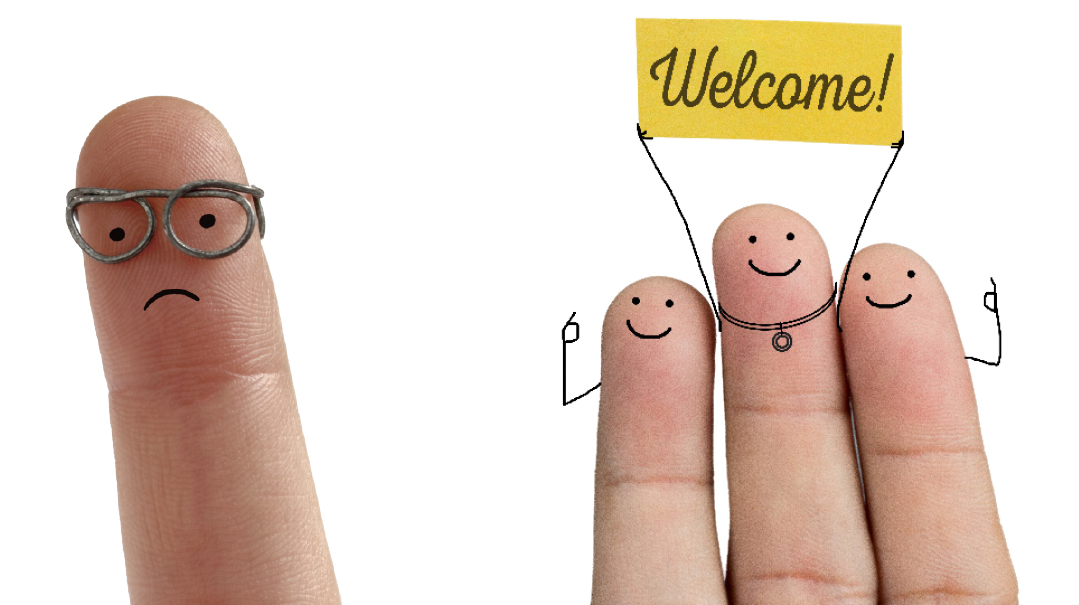“Should Women Be Schmoozing about Their Shalom Bayis?”

The best way to end the conversation without making an issue or insulting anyone is to subtly change the topic

You asked
I’m in my mid-twenties, married with two little children. I’m part of a small, close chevreh of women in my neighborhood, all more or less at the same stage in life, and we support one another in a really nice way.
We very often get together, sometimes just two or three of us, sometimes more, to take the kids to the park or an indoor play center in the afternoons, and then the mommies sit and schmooze. A lot.
We’ll start with supper ideas, move onto sales, then it might veer into teething and toilet training. But then it turns into more personal things, topics I feel friends shouldn’t be schmoozing about. I have no problem talking about concepts: shalom bayis, chinuch — these feel okay to me as ideas. But when my friends begin talking about their personal shalom bayis, it feels uncomfortable. Shouldn’t this be kept private?
One time I brought up the idea of oversharing, but I was shot down. I was honest and said that schmoozing about such a personal subject didn’t feel right to me — it felt like a breach of tzniyus. Some of my friends nodded and shifted uncomfortably, saying they agreed, but mumbled that “this is what we do,” and “it’s just between us….” Others disagreed. One even said that it was important we had each other, and if we can’t be open with close friends, then what kind of relationship did we have?
Since that discussion, some friends are more careful around me, some aren’t, and some will make “jokes,” warning others to be careful in front of “the Rebbetzin,” which obviously bothers me. I’m not frummer than my friends. But I do sometimes feel like an outsider, torn between my values and friendships that I really, really need. How can I balance what I feel is right with my need to be part of my chevreh?
We answered
Mrs. Mimi David is director of Women’s Education for Aish HaTorah of St. Louis. She’s also a certified dating coach and certified kallah teacher trained by Mrs. Rochel Goldbaum, and teaches kallahs across the US via Zoom and in person.
Before we talk about your friendship, I want to say that these days, there’s little that belongs just to a husband and wife. Everything is shared. But the little that does belong to a couple should remain that way. It’s amazing that you recognize this, and I’m cheering for you. I wish more young women realized how vital this is. Don’t for a minute give up on your standards; you’re doing great!
Now let’s talk about your friends. I’m really not okay with your friends calling you names (even as a joke) or mocking your standards. But I’m not talking to them, so we’ll have to leave that discussion aside and address your side.
You’re being the change you want to see in the world. Know that when we do that, it works. Every time. But it’s a process. In your case, you’re also changing the dynamics of a friendship, so it’s a double challenge.
Changing relationship dynamics takes time. It will take a while for your friends to get used to your standards, but eventually what you’re saying will sink in. Some of your friends might have a problem with your approach, but they’ll learn to discuss what they want to discuss when you’re not there. The group, with you as a part of it, will eventually change to make room for your sensitivity.
Your friends who call you “Rebbetzin” are feeling guilty, because adults don’t put other people down unless they’re feeling uncomfortable with themselves and want to bring you down to where they are. They realize on some level that you’re right; their conversations are borderline (at best) or off (more likely, if they’re discussing topics that veer into personal issues). Your raising awareness irks them, which is why they’re taking jabs at you. But don’t let this stop you from doing what you know is correct.
Let’s leave aside what they’re talking about. The point is that one person in the group is uncomfortable with something her friends schmooze about. We’d approach this in the same way if we were talking about a health issue that someone in the group was sensitive about.
The best way to end the conversation without making an issue or insulting anyone is to subtly change the topic. I have a friend who loves to talk about people. The minute she starts, I work to steer the conversation elsewhere. Granted, in a group setting it can be more challenging — you’re one person trying to steer the other two or three away from a topic. Sometimes you might have to say outright that you’re not comfortable with the discussion, but often changing the topic is enough.
If your relationship with your friends is solid in all other areas, and this is the only sticking point, then chances are you’re not causing a rupture in the group dynamics. It doesn’t sound like you’re criticizing anyone or are at risk of being ostracized. The ones who agree with you will eventually make that shift (and may even appreciate what you’re doing), and the ones who don’t, will make sure to keep you out of the inappropriate conversations.
When you’re around, they’ll be more aware that there’s a line of propriety they shouldn’t cross. I don’t think you need to raise the issue again; they know how you feel. When the conversation goes south, you can just subtly change the topic.
As I said, change takes a long time to be felt, but it happens. It sounds like these are good friends. Friendships are about respecting the things that are important to the people we care about, so keep steering the conversations in the right direction.
I truly believe that you can have both — your friendships and your values. Kol hakavod to you for understanding the importance of both and wanting to hold on to them!
Steering Friendship to Good Places
Working on friendships doesn’t end after high school. We need to be proactive about our friendships at every stage, whether we’re 25, 45, or 65.
As adults, we’re able to use wisdom and sensitivity to navigate and sometimes even subtly manipulate certain dynamics in friendships. Here are two small examples:
*You have a social circle you know spends too much time talking about things you don’t want to — let’s say materialism and “stuff.” You don’t want to schmooze about “stuff” all the time! Maybe you can hang out with them one-on-one as opposed to in a group. This makes it easier to stay on top of the conversation and make sure it doesn’t go to a place you’ll feel uncomfortable having gone.
*Here’s another. Tzniyus b’dibbur is a real thing. You have an upcoming simchah, baruch Hashem, but your friend has a bunch of single kids. It doesn’t mean you can’t share your good news, but be sensitive to how much you gush! You’re headed on a luxury vacation, but your friend can’t even afford a night away in a three-star hotel. No need to go on about every last detail of your trip. A good friend will “fargin” and be happy for you, but she’s still human and you need to be sensitive to her feelings. Ein habrachah metzuya ella b’davar hasamui min ha’ayin — blessing resides in what’s hidden from the eye, and we all want brachos to pile up on us!
(Originally featured in Family First, Issue 755)
Oops! We could not locate your form.












